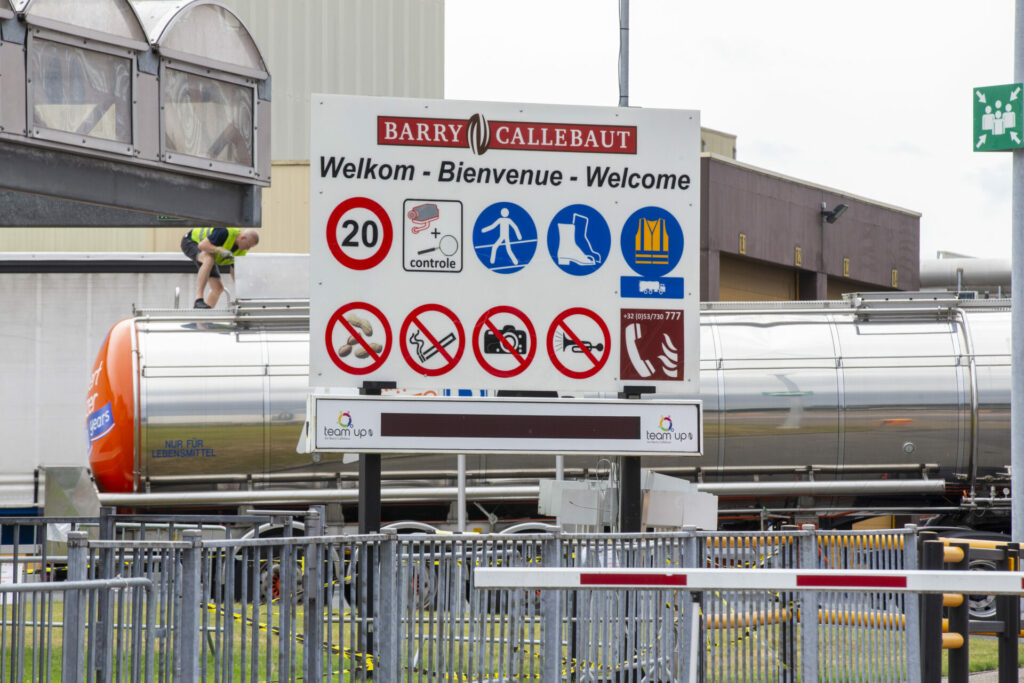Following the recent salmonella outbreak at the world’s largest chocolate factory, Belgian-Swiss chocolate manufacturer Barry Callebaut has started the destruction of hundreds of tonnes of chocolate.
This week, the company will start removing contaminated chocolate in two phases, its spokesperson Korneel Warlop confirmed. During the first phase, a total of around 30 trucks each holding 35 tonnes of chocolate will be removed from the site in Wieze, East Flanders.
"In the first phase of destruction, the liquid chocolate that was already in our heated trucks for transportation to the customers will be driven directly to the waste processor to be destroyed," he told The Brussels Times.
In the second phase, liquid chocolate that has been contaminated will be pumped from the factory's tanks into the moulding room, where blocks of 5kg and chocolate drops will be created. These will be stored, and once all chocolate from the first phase has been destroyed, the company will start transporting the second, non-liquid load to waste processors.
"We are creating these blocks and drops as they are easier to store, meaning we can spread the loads that are being sent to the processors, and avoid creating bottlenecks."
Unified waste collection
On Thursday last week, production at the factory was halted, and all chocolate produced at the factory after 25 June has been withdrawn from sale.
No contaminated chocolate entered the Belgian food supply as a result of the salmonella outbreak, however, Belgian chocolate producer Neuhaus suspended its production, as a "good portion of the potentially contaminated chocolate had already been used in its factories" by the time it was notified of the outbreak.
Related News
- Police raid Brussels Ferrero offices after salmonella scandal
- Belgian chocolate producer suspends production after Salmonella detected
- World's largest chocolate factory: No salmonella contamination in Belgian food supply
Warlop explained that this chocolate too will be destroyed in a similar way. "We have an agreement with the Belgian Food Safety Agency (FAVV) and insurers to ensure a unified process so that all waste collection can take place at the same time and without discussions regarding costs."
Re-starting production
Warlop explained that, as this is such an exceptional case, it is difficult to determine when the factory will be up and running again, as the company is not sure how long the processing of the contaminated chocolate will take.
"It is unclear when the cleaning process will be done but we also don't know the exact root cause of the contamination yet," Warlop said.
An investigation into the exact cause of the contamination is ongoing. As it was Barry Callebaut itself that decided to halt production and not the FAVV, the results of the investigation will not be needed before the factory can reopen, however, the company will have to prove it is safe to restart production first.
"The company just needs to ensure that they now have the measures in place to work in a food-safe manner, and if they can prove this, they are free to re-open once this can be guaranteed," Hélène Bonte, FAVV's spokesperson, told The Brussels Times.
Warlop said it was too soon to say what the financial impact of this outbreak will be. "But stopping the factory is considerable. It was a big decision to take, but it was also non-negotiable, as food safety is the most important thing for us," he concluded.

